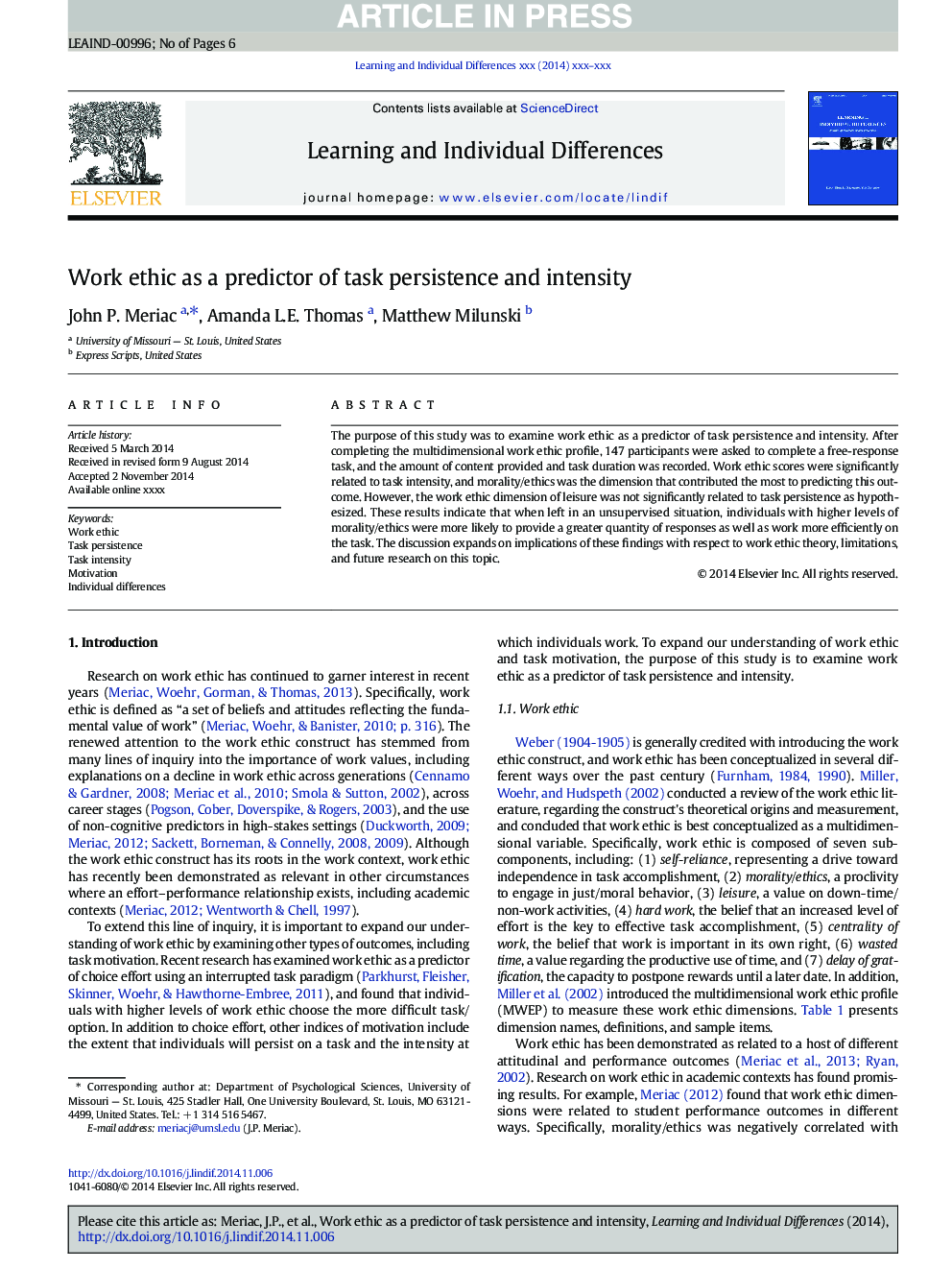| Article ID | Journal | Published Year | Pages | File Type |
|---|---|---|---|---|
| 6844981 | Learning and Individual Differences | 2015 | 6 Pages |
Abstract
The purpose of this study was to examine work ethic as a predictor of task persistence and intensity. After completing the multidimensional work ethic profile, 147 participants were asked to complete a free-response task, and the amount of content provided and task duration was recorded. Work ethic scores were significantly related to task intensity, and morality/ethics was the dimension that contributed the most to predicting this outcome. However, the work ethic dimension of leisure was not significantly related to task persistence as hypothesized. These results indicate that when left in an unsupervised situation, individuals with higher levels of morality/ethics were more likely to provide a greater quantity of responses as well as work more efficiently on the task. The discussion expands on implications of these findings with respect to work ethic theory, limitations, and future research on this topic.
Related Topics
Social Sciences and Humanities
Psychology
Developmental and Educational Psychology
Authors
John P. Meriac, Amanda L.E. Thomas, Matthew Milunski,
